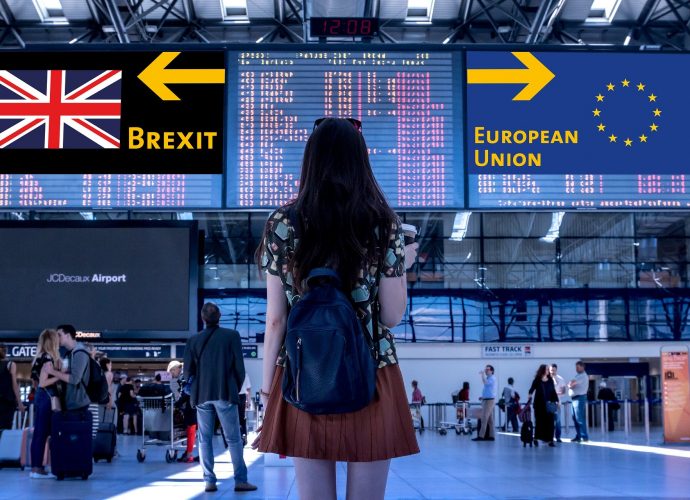Lawmakers approved legislation which will allow Britain to leave the European Union on Jan. 31 with an exit deal, ending more than three years of tumult over the terms of the unprecedented divorce.
MPs on Thursday night voted in favour of the Withdrawal Agreement Bill at its third reading by 330 votes to 231, a majority of 99. A preliminary Brexit deal was agreed by then-European Commission President Jean-Claude Juncker and Prime Minister Boris Johnson on 17 October 2019.
“It is time to get Brexit done. This bill does so,” Brexit minister Stephen Barclay told lawmakers, summing up hours of debate in parliament. The Brexit Bill has now passed to the House of Lords, where peers will debate it next week.
Labour peers are expected to table an amendment to guarantee the right of unaccompanied child refugees to be reunited with their family living in the UK after Brexit. They are also expected to table their own amendment to legally require the government to keep the Erasmus scheme, which allows for students to study at universities in the EU member states.
A report from the House of Lords EU Committee has warned the benefits of the programme would be difficult to replicate with a national programme and that leaving Erasmus would “disproportionately affect people from disadvantaged backgrounds and those with medical needs or disabilities”.
Prime Minister Boris Johnson believes that a free-trade deal between the UK and EU can be negotiated in time, but his counterparts in Brussels are less convinced. On Wednesday, European Commission President Ursula von der Leyen indicated that it would be “basically impossible” to negotiate all aspects of the UK’s future relationship with the EU by the end of this year, adding that both sides must pick priorities.
Britain leaves the EU on Jan. 31 but, while no longer an EU member, an agreed transition phase means it will remain bound by all the bloc’s rules and pay into the EU’s budget until the end of the year.
Unless London asks for an extension of the transition period beyond 2020, trade relations between the EU and Britain from the start of 2021 will either be governed by whatever agreement can be hammered out by the end of this year, or World Trade Organization rules.
Ursula von der Leyen reiterated the EU wanted a new partnership with Britain under which there would be “zero tariffs, zero quotas and zero dumping” and that would address everything from climate action to data protection, fisheries to energy, transport to space, financial services to security.











Thanks!
Our editors are notified.